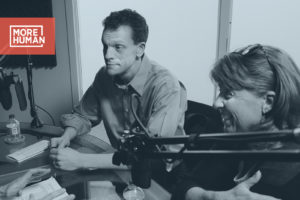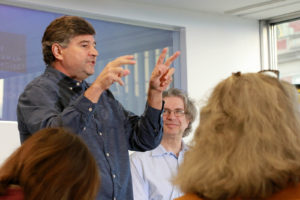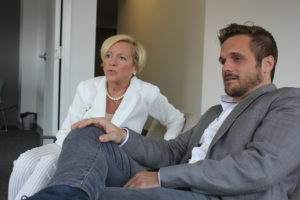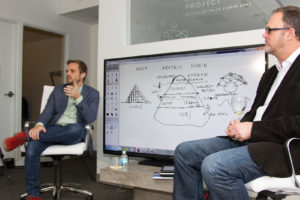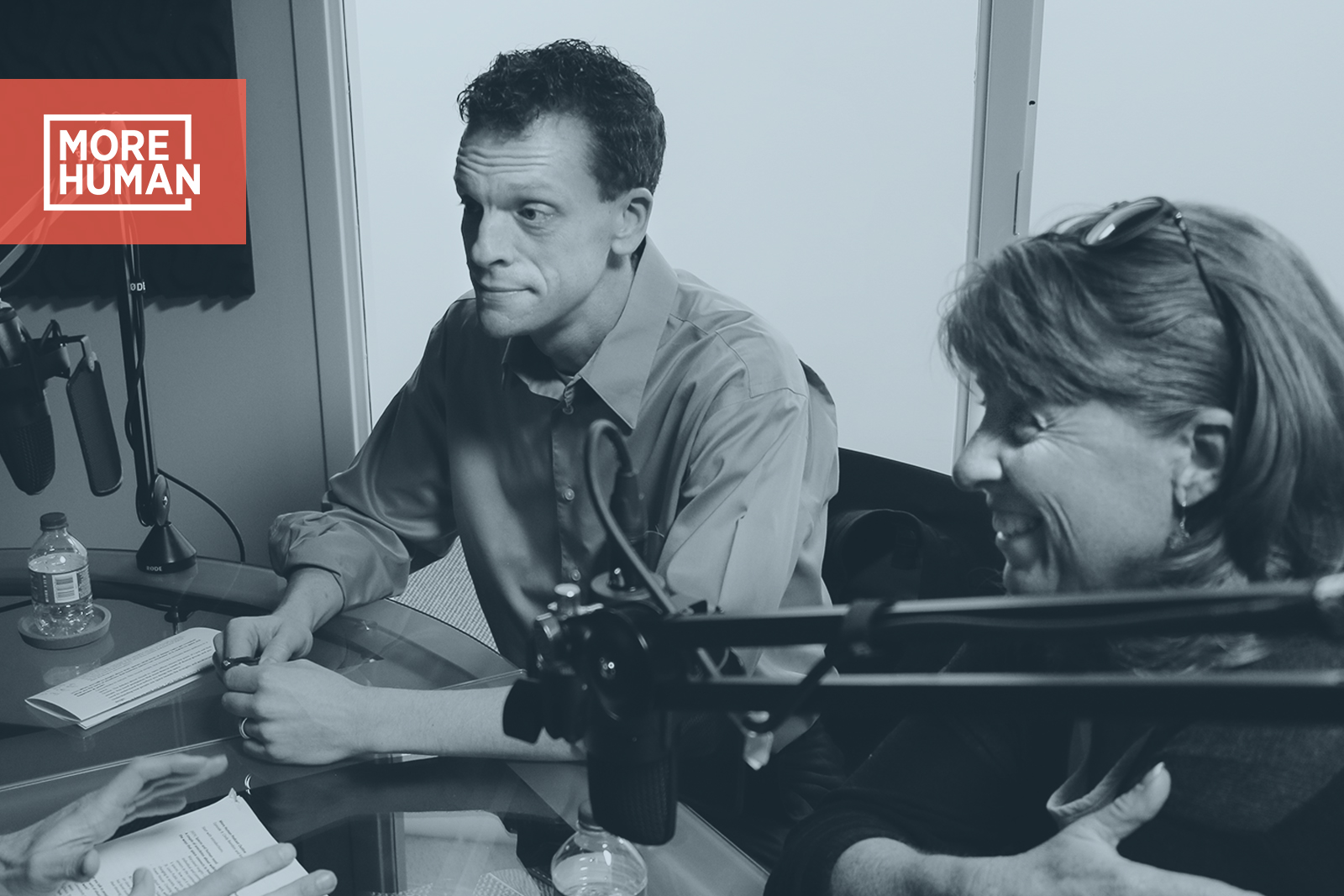To work is human – or is it? Musings from Happywork’s Chris Reimer
We are all so different.
Instead of embracing tried and true phrases like, “We’re all made from the same stuff,” and “Diversity is our strength” (both of which are true, by the way), I choose to approach human interactions and teambuilding from a somewhat sideways angle. Human beings are all so different, and this presents challenges we need to face head-on.
How do these challenges impact our work? When we accept a new job, we are being adopted into a strange family. It’s no less a harrowing affair than that. The dynamic of this new work family often proves to be more odd than our actual families (your results may vary). Look around your office – NO ONE IS LIKE YOU. Men, women, black, white, old, young, and so on … and all with different upbringings, too. In a “glass is half full” world, this could theoretically mean we have differently talented people with an assortment of experiences, ready to tackle any and all situations. In reality, office diversity complicates human teamwork.
We are ostensibly hired to plug a talent hole – you’re part of the team because you’re needed. Sounds promising. However, this happy marriage of company need and employee talent does not alone make the adoption procedure successful. What tips the scales is playing well in the sandbox with those not like us (which is everyone at work).
Here’s the problem: in high school, college, vocational school, wherever you went to learn what you needed to know to work the job you work, you received no training on how to cooperate with people not like you.
If you’re an accountant, you are taught to understand the procedures and the regulations, to test the numbers, and you know everything there is to know about a balance sheet. You received little to no training on how to work with older people, with those less talented than you, with people of a different race, religion, or sex. Further complicating matters, each of these differences presents its own unique set of challenges. The art of human interaction is complicated.
What is an organization to do? Most tightly run outfits would say that any friction caused by the frailties of human interaction is just a “cost of doing business,” and has little to do with making a company successful, or more successful.
This is where we’ll have to disagree.
Our work – what we make with our hands and our minds for 40-70+ hours a week – is just as human an endeavor as finding love, procreating, and making art. Therefore, why is it any less important? On top of that, if work chews us up and spits us out, from where will we draw the strength to outperform on the home front? Our jobs often leave us with no gas left in the tank upon arriving at home. Work unnecessarily (and dangerously) hinders our ability to be great spouses and parents. That might be the true tragedy of work as it is currently constructed.
If we can accept the fact that we’re always going to be working with people not like us, and we proactively choose to understand and take the perspective of others, we’ll add empathy to the workplace, remove barriers between each other, and give true teamwork a chance to take root. The return on investment (ROI) of true teamwork is self-evident.
On the evening of April 22, I’ll be the featured guest at the third Be Human Salon, and we’ll be discussing why work needs to fit into our humanity, and how we can jump-start the process of making this big change. I look forward to the discussion!


